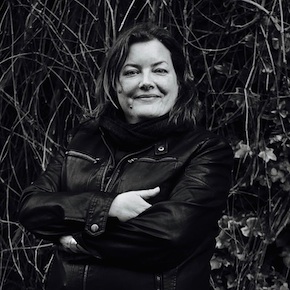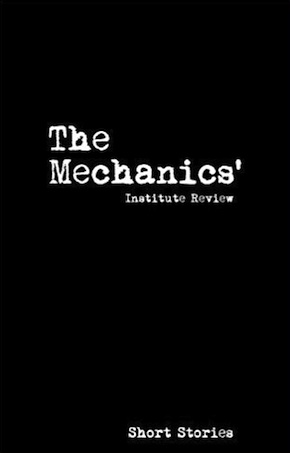Adventures of the imagination
by Julia BellTeaching creative writing is a pain in the ass. You bust a gut all year to put on thoughtful classes, to challenge, coax, and inspire the best work, you read reams and reams and reams of work in progress and then a few flinty, original pieces which give you hope, only to be met by student feedback that goes something like: While I enjoyed the professors’ knowledge of the subject and PowerPoint skills and their enthusiasm for the work of Virginia Woolf, I would still like the step-by-step guide to the mechanics of writing a novel.
Patiently, you explain that the step-by-step guide to writing a novel doesn’t exist. That every single book on the market shilling advice on how to write the best thriller/erotica/YA/whatever will be sharing with you some common advice repackaged for the genre but it won’t transform the pile of pages in front of you into a successful novel. Nor will a creative writing course.
Of course there are means of gaming the system a little. If you really do have your eye on commerce, some basic bits of advice about plotting and character development are worth heeding, but this is no substitute for fluent prose, the original concept, for the adventure of the imagination. These gifts are unteachable, like the voice of the individual writer – essentially it’s the writer against the page trying to communicate something. For hours, days, a lifetime. If you don’t have that appetite for the work, chances are the pages will stay just that, the half a novel in the bottom drawer.
I say loudly and often that I can’t teach boring people to be interesting but I can teach interesting people how to think and therefore how to write better. Teaching writing at MA level is Socratic – dialogic – a discursive process, a push-pull between student and tutor, between reader and writer, where the story is always a negotiation – a creation – between the words on the page and what the reader brings to the story. The reader is not a passive actor in the process. Readers bring lives, language, prejudice, experience to the page; reading is an active process. This is where the teaching really happens, when the writers learn to read themselves and the work of others with close attention. A good writer and a good reader are two sides of the same coin.
This is a lesson that the short-story writer understands from the get-go. Because short stories rarely make bestsellers, the corruption of commerce is removed from the equation, meaning that short-story writers, much like poets, are creating for the sake of the art. For the adventure of prose, to see what can be made. To push an idea, a thought, a character, a voice.
Chekhov said in a letter to a friend that the job of a good story was not to try and answer a problem because that created didactic prose, but to ‘present the problem correctly’.”
The reader is presented with a series of knotty snapshots, pieces which can read your day, to be pondered on the commute, or as you take the dog for a walk. Good short stories are little problems, as Chekhov, the early master of the form, knew. He said in a letter to a friend that the job of a good story was not to try and answer a problem because that created didactic prose, but to “present the problem correctly”.
Short stories shine a focused light in a way that the novel, full of words and characters, cannot. Brevity concentrates the attention. We know that the time to read one will be maybe fifteen, twenty minutes; the time to write one might have been, draft by draft, more than twenty years. In a culture with increasingly short attention spans the practice of writing a story, like a poem, can mean a deep engagement with language, but also with character – small gestures take on epic significance when under the pressure of the temporal.
Perhaps there is one mechanical piece of advice that applies here: show, don’t tell. A good story is a showing – much like any other art form; a presentation of an idea shaped through language which should leave both the reader and writer with an experience. For the time-pressed reader stories offer a small window through which to think differently about the world; they take you out of the room of your mind. They focus attention away from all the distraction. In short – words matter and everything counts.
We have a long commitment to publishing short fiction at Birkbeck. The Mechanics’ Institute Review has been in print since 2004 – every year a group of volunteer editors selects about twenty of the best stories to emerge from students who have done our courses. The latest volume, our fourteenth, marks a big change and is the first to be open to submissions from across the country and funded by Arts Council England.
What has emerged over the long process of reading the submissions is a unique snapshot of new writing in the UK, with subjects ranging from Iranian immigrants in London, coming out in Carmarthenshire and reunions in Gloucester, to celebrity culture, trial by social media, child sexual abuse, MGM and the refugee crisis.
Short-story writers, because of their attention to nuance and language, can give us rich and pithy insights into the state we’re in.”
Our pool of editors reflects the diverse profile of the student body: because we teach in the evenings, to allow people to remain at work while they study, we attract applications to our writing programmes from students not just from London, but from the Midlands and across the south-east and from all social backgrounds and ethnicities.
Stories have a way of tapping into collective narratives much more deftly than novels. A state-of-the-nation novel is a matter of luck and timing; a story, thanks to its brevity, can be dispatched quickly after the event. And short-story writers, because of their attention to nuance and language, can give us rich and pithy insights into the state we’re in.
We hold a torch for the form, seeing it not just as a proving ground for new voices, but as a literary achievement in and of itself. This year’s anthology is stuffed full of these small, but perfectly formed achievements. They are offered to the reader carefully edited and considered, and we hope that whatever you make of them, you will, as Raymond Carver said, be moved a little from the place where you were in before you started reading.
From the Foreword to The Mechanic’s Institute Review issue 14, Autumn 2017 (Birkbeck, £10)

Author portrait © Peter Clark
Julia Bell is the Course Director of the Creative Writing MA at Birkbeck and Project Director of The Mechanics’ Institute Review. She is the author of three novels – most recently, The Dark Light (Macmillan, 2015) – and co-editor of The Creative Writing Coursebook (Macmillan, 2001) as well as three volumes of short stories, the latest being The Sea in Birmingham (Tindal Street Fiction Group, 2013). She also takes photographs and writes poetry, short stories, occasional essays and journalism. The Mechanic’s Institute Review is a new nationwide anthology by Birkbeck, University of London, showcasing the best short story writing from across the UK. The book collects 24 stories selected from an open submissions process, alongside new writing from award-winning authors Jenn Ashworth and Alan Beard
Read more
juliabell.net
@JuliaBell
@Editors_MIR
Read a story from the anthology:
‘What to Do When You Can’t Do Anything’
by Stephanie Hutton


